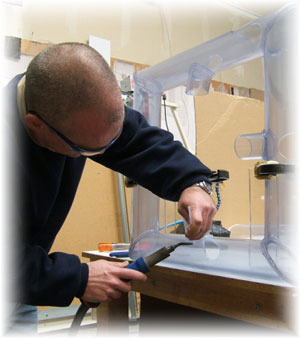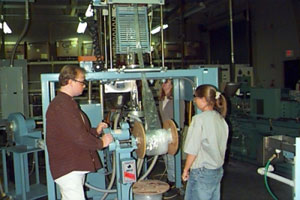Plastics Engineer
Tasks & duties

Plastics engineers may do some or all of the following:
-
set up the die (mould for shaping the product) to produce a plastic product
-
prepare the line-changing equipment (for changing the product that is being made)
-
change the equipment in the machines so they produce different products
-
start up and shut down the machines
-
set and record machine conditions such as heat, pressure and vacuum levels
-
make sure the product complies with the specifications
-
fix process problems if products do not meet the required standard
-
conduct basic quality control tests
-
fabricate equipment
-
design equipment
-
fix or organise the fixing of machines
Skills & knowledge

Plastics engineers need to have:
-
engineering and tool-making skills
-
knowledge of plastics machinery and how different machines are used together to produce the final product
-
knowledge of plastic products and the standards they must meet
-
an understanding of the plastics production process
-
knowledge of heats, pressures and vacuums in relation to plastics production
-
basic maths skills
-
problem-solving skills
Entry requirements
There are no specific entry requirements to become a plastics engineer, as skills are gained on the job.
Secondary education
School Certificate or NCEA equivalent metalwork, maths, physics and chemistry are useful to become a plastics engineer.
Training on the job
Plastics engineers can work towards the National Certificate in Engineering and Technology (Plastics Engineering) through a combination of on and off-the-job training. For further information contact the Plastics and Materials Industry Training Organisation (PaMPITO).
Useful experience
Useful experience for plastics engineers includes:
-
factory work
-
shift work
-
team work
-
any work that involves continuous processes
-
mechanical engineering or welding work
Related courses
Manufacturing Engineering
Plastics Processing Technology
For more information, please refer to Career Services.
Document Actions
